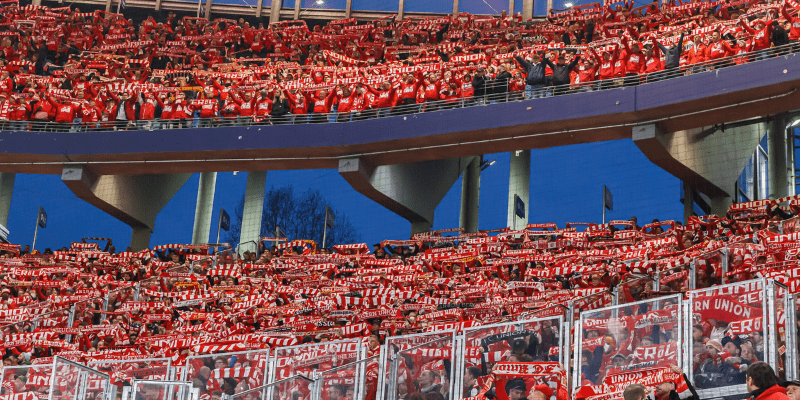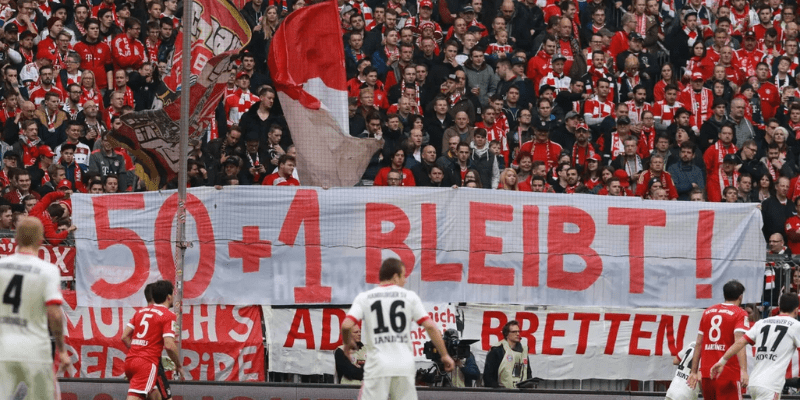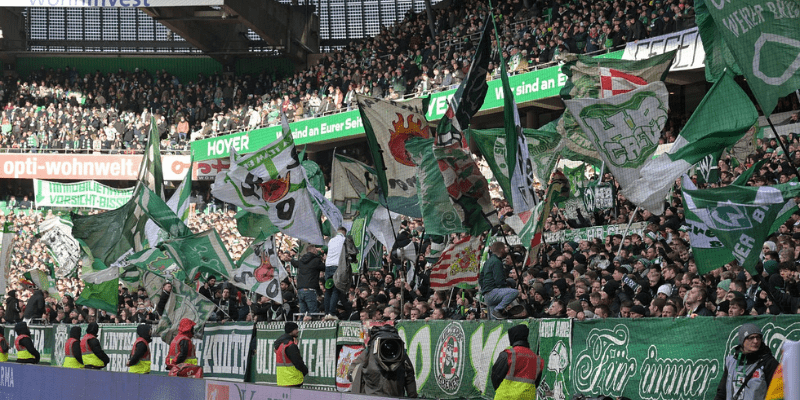In German football, the question “are Bundesliga clubs fan owned” has one main answer: yes, most top clubs are majority-owned by their members (i.e. fans), thanks to the famous 50+1 rule. But—there are exceptions, controversies, and evolving debates. In this article, AdiyaBall will walk you through how the system works now, who it protects, where the exceptions lie, and what that means for clubs, fans, and the future of Bundesliga ownership.
What is the 50+1 rule

The 50+1 rule is a regulation in German professional football (Bundesliga and 2. Bundesliga) that ensures that a club’s parent organization or association (typically made up of its club members, i.e. fans) retains at least 50% of the voting rights plus one more vote in any company (or corporation) that runs its professional football operations. This means external investors can hold stakes—but they cannot obtain the controlling voice.
This rule was introduced in 1998 to protect clubs, and ensuring decisions remain more grounded in sporting—not purely commercial—considerations.
Who is covered: are most Bundesliga clubs fan owned?

Under the 50+1 rule, yes: the majority of Bundesliga clubs are controlled by their members. In other words, the fans (through the registered club membership structure) hold the controlling vote. This gives fans a formal say in major decisions (e.g. election of club officials, oversight over major structural or financial choices).
Some specific examples:
- Bayern Munich is majority-owned by its club membership (plus some corporates hold minority stakes). Fans (members) control the majority voting power.
- Borussia Dortmund is also fan-controlled under the 50+1 model.
So, are Bundesliga clubs fan owned? In general: yes—at least in terms of who holds the power.
Exceptions: clubs not fully under fan control

There are important exceptions to the rule. Some clubs have either been granted long-standing exemptions, or have ownership structures that depart from the fan-majority in voting rights, while remaining technically compliant under certain allowances. Here are the main ones:
- Bayer 04 Leverkusen: Founded by the Bayer pharmaceutical company, it has long been supported and partially run by Bayer. Given the historical relationship, Leverkusen qualifies for an exemption.
- VfL Wolfsburg: Linked with Volkswagen, another corporate “works club”. Similar situation: because of continuous support and founding origins, Wolfsburg holds an exemption.
- TSG 1899 Hoffenheim: Dietmar Hopp (co-founder of SAP) invested over decades and obtained an exemption under the long-term support rule. However, as of November 2023, Hoffenheim returned its majority voting rights back to its membership (i.e., the e.V.), becoming a 50+1 club again.
Another complicated case is RB Leipzig. Formally, it operates under structures that comply with 50+1, but the membership and governance regulations are structured in such a way that the external influence (Red Bull GmbH) has very large practical power. This has made Leipzig controversial, and many argue it stretches the spirit of the rule.
Recent debates and pressures for change
Fan ownership under 50+1 is increasingly under debate, especially with financial competition in Europe heating up, and external investment being a path many clubs elsewhere are using to grow.
Some of the current issues:
- Regulatory pressure
- The German competition authority (Bundeskartellamt) has raised concerns about the exemptions (e.g. for Leverkusen, Wolfsburg) and whether the rule is being uniformly applied. There are proposals to ensure no more exceptions are granted, and that the rule be more strictly enforced.
- Fair competition vs investment gap
- Critics argue that the rule limits access to outside capital, slowing the competitiveness of German clubs in Europe vs clubs like Manchester City, Paris Saint-Germain others backed by billionaires. On the flip side, defenders of 50+1 point to German clubs’ relative financial stability, strong fan culture, sensible spending, and lower risk of financial collapse.
- Governance concerns
- How membership structures are set up can affect how democratic a club really is. Leipzig is often cited as a case where membership is highly restricted. The calls are for clearer rules so that the fans’ voice is not just legal formality.
- Potential legal challenges
- The rule has been under legal scrutiny (EU law, competition law) for possibly restricting investment. But so far, the guarantee of fan control seems to have survived.
What “fan owned” really means in this system
Because “fan owned” is sometimes misunderstood, it’s useful to break down what it does and doesn’t mean under the Bundesliga/50+1 model:
- It means: Fans (members of the club) elect leadership, set rules, vote on major matters. They have legal control over the structure where the pro team is spun off as a company. The parent club keeps majority control.
- It doesn’t mean: Fans necessarily put up the money. External investors can contribute funds, buy shares (up to a point), sponsor, etc. Also, some clubs use corporate backing behind the scenes. Also, some fans might feel limited influence in day-to-day business.
How the exceptions came about
The main reason for the exceptions is historical: clubs like Leverkusen and Wolfsburg began as “works clubs” (clubs founded by companies for their workers). Because those companies had been supporting them for decades before the formal regulation of 50+1 was introduced, they were granted grandfathered exemptions. Similarly, Hoffenheim’s investor had long and continuous involvement.
It’s worth noting that Hoffenheim voluntarily gave up its exception in late 2023, returning majority voting rights to its members. That shows some willingness among exceptions to conform more closely with the spirit of 50+1 when under pressure or when they choose to.
Impacts: what fan ownership brings and what it costs
Here are pros and cons, from fan perspective and club performance:
Advantages:
- Stronger club identity and tradition; fans feel invested in more than just results.
- More stable finances; with checks on over-exuberant spending. Many German clubs avoid debt spirals seen elsewhere.
- Higher transparency and accountability.
- High attendance, affordable prices – often ticket pricing is more fan-friendly than in other major leagues.
Challenges:
- Limited access to large capital injections which some clubs elsewhere use to leap ahead.
- Difficulty in competing financially in transfer markets or paying high wages.
- Possible resistance to rapid change or modernization if fan majority sees risk to tradition.
Are future changes likely?
Yes, there are signs that the model could evolve:
- The DFL is pushing for stricter enforcement of 50+1, and possibly tightening the rules around how exceptions are managed.
- Legal bodies are scrutinizing whether certain exemptions violate competition laws.
- Fan groups are vocal: many want more openness in membership, more real influence, fewer loopholes for investors to control things in practice.
So while the core of the rule seems durable, how it is applied, how many exceptions are allowed, and how “fan-controlled” in practice a club is, are still contested.
Conclusion
Are Bundesliga clubs fan owned? Almost always—but not universally. The 50+1 rule ensures that fans retain real control in most cases, making German football one of the best examples in Europe of democratic club ownership. AdiyaBall hopes this guide helps you understand exactly how that system works, who it protects, and where the gray areas lie.
If you’re curious: look up your favorite Bundesliga club’s will they be fully 50+1 (if they aren’t already), or what the membership fees and voting rights are. Dive into club statutes—it’s a fascinating window into whether supporters really run the show.






